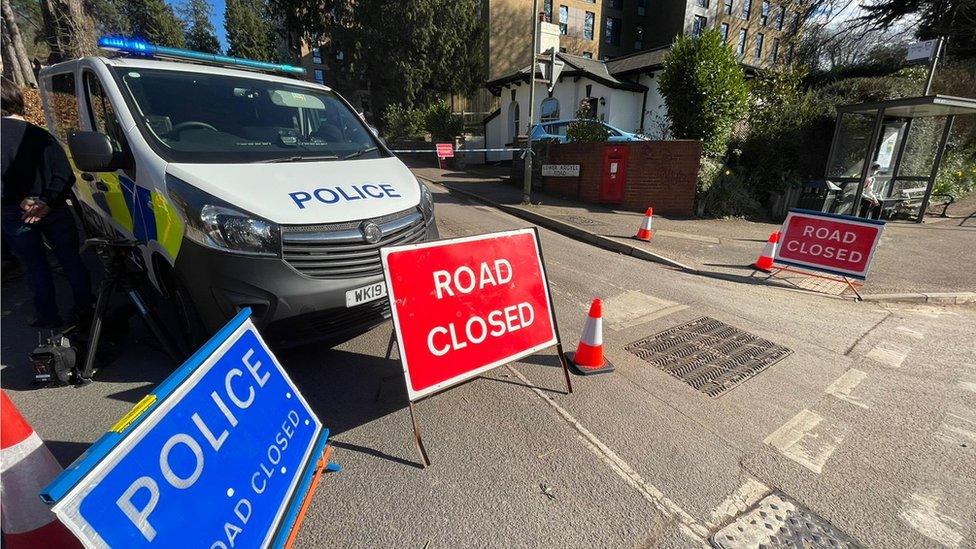Exeter WW2 bomb: Home Office 'responsible' for bomb damage
- Published
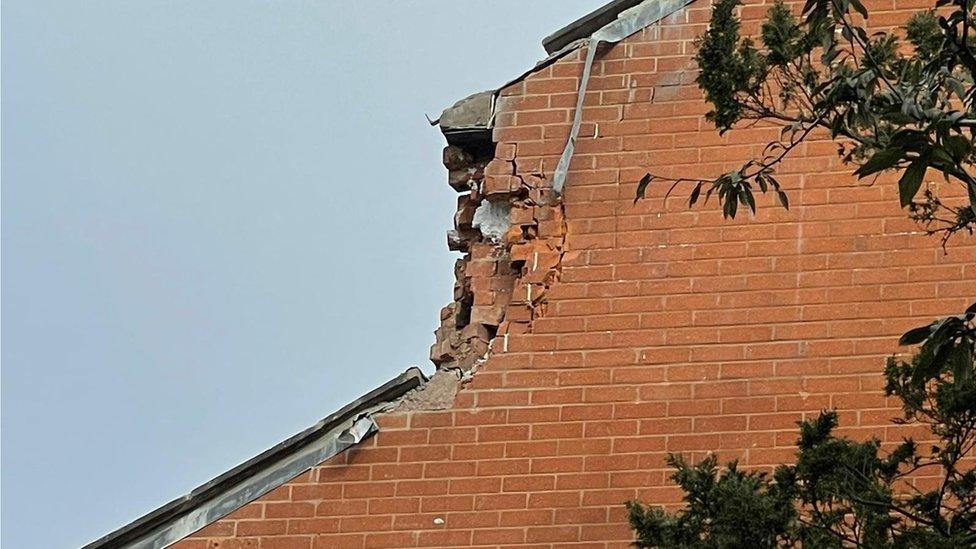
Properties nearby were damaged in the controlled explosion on Saturday
The government could be liable for damage after the controlled explosion of a World War Two bomb, according to an MP.
Some people spent a fourth night away from their homes in Exeter after the bomb was detonated on Saturday, blowing out doors and windows of nearby homes.
Ben Bradshaw, Exeter's Labour MP, said "residents will be looking for answers" on who is liable to pay for the damage.
The Home Office has been asked to comment.
The 2,200lb (1,000kg) German bomb was discovered on an allotment due for development on Friday.
More than 2,600 households and University of Exeter halls of residence were evacuated after the device was found on Glenthorne Road on Friday.
Aerial footage of Exeter bomb exploding
Damage is visible on a number of homes in the area, including to windows, doors and roofs.
Mr Bradshaw said: "It is really important that the government clarifies the issue of liability as soon as possible.
"We don't want residents to be involved in years and years of potential wrangling over who is going to foot the bill.
"People have got enough on their plates at the moment."
Exeter City Council has lifted the safety cordon to allow residents to return to their properties but it said many "will be uninhabitable at this stage".
A spokesman said: "It will now be down to these residents to return to their properties and contact their own insurance companies to make any further arrangements."
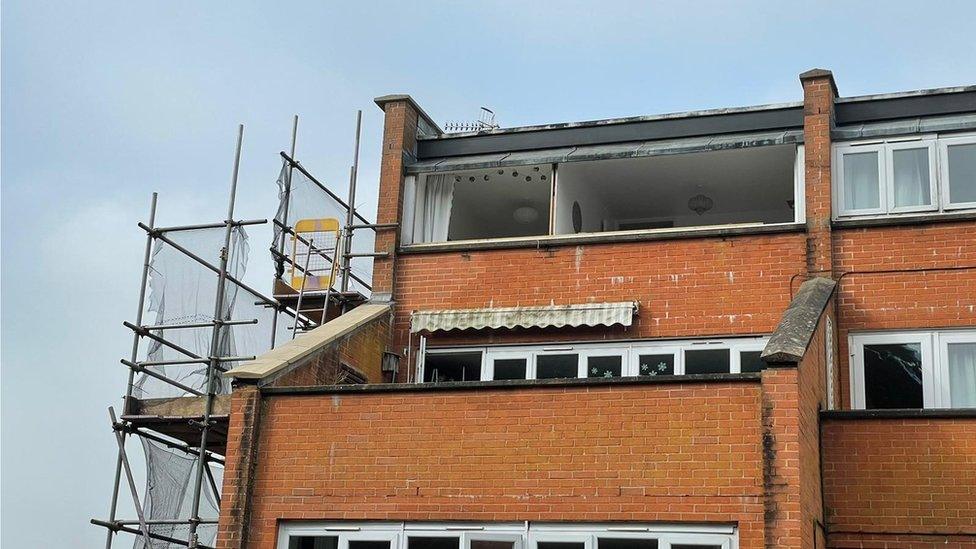
Windows and doors were blown out by the blast
Nick Sanders, of nearby Copplestone Drive, said he had "no idea" when he would be able to return to his house which was damaged.
He said there were cracks in the house and a radiator had "blown off the wall".
"I'm over the moon that nobody was injured," said Mr Sanders, who has been staying in a bed and breakfast with his wife since Saturday.
"Everybody's doing the best they can in the circumstances.
"The council and social services have looked after us so well."
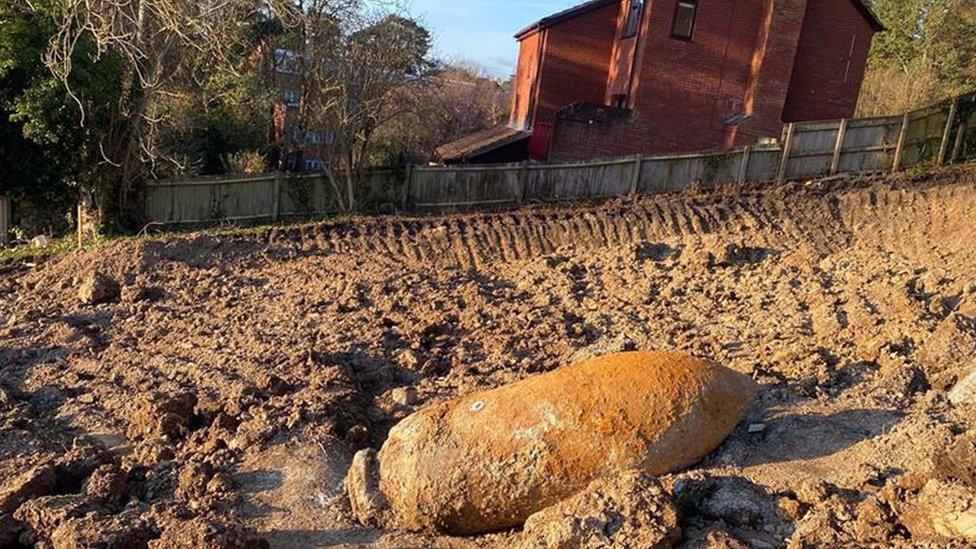
The bomb was dropped in one of 19 raids during World War Two, which saw more than 7,000 devices dropped
The University of Exeter said about 300 of the 1,400 evacuated students had not returned following the explosion in the city, which damaged houses on Saturday.
The bomb was found on Friday morning by builders on private land next to the University of Exeter's Streatham campus.

Police said some properties in the 100m exclusion zone had sustained "structural damage"
Bomb disposal teams destroyed the device in a 400-tonne "box" of sand just before 18:15 GMT on Saturday in an explosion heard up to five miles (8km) away.
Debris was thrown at least 250m (820ft) away, said police.
The city was heavily attacked by German bombers in 19 raids during World War Two, which saw more than 7,000 devices dropped, particularly in May 1942 during the Baedecker Raids, external.


Did you witness the detonation? Are you staying away from your home because it was evacuated? Tell us your story by emailing: haveyoursay@bbc.co.uk, external.
Please include a contact number if you are willing to speak to a BBC journalist. You can also get in touch in the following ways:
WhatsApp: +44 7756 165803, external
Tweet: @BBC_HaveYourSay, external
Or fill out the form below
Please read our terms & conditions and privacy policy
If you are reading this page and can't see the form you will need to visit the mobile version of the BBC website to submit your question or comment or you can email us at HaveYourSay@bbc.co.uk, external. Please include your name, age and location with any submission.

Follow BBC News South West on Twitter, external, Facebook, external and Instagram, external. Send your story ideas to spotlight@bbc.co.uk, external.
Related topics
- Published1 March 2021

- Published28 February 2021

- Published27 February 2021
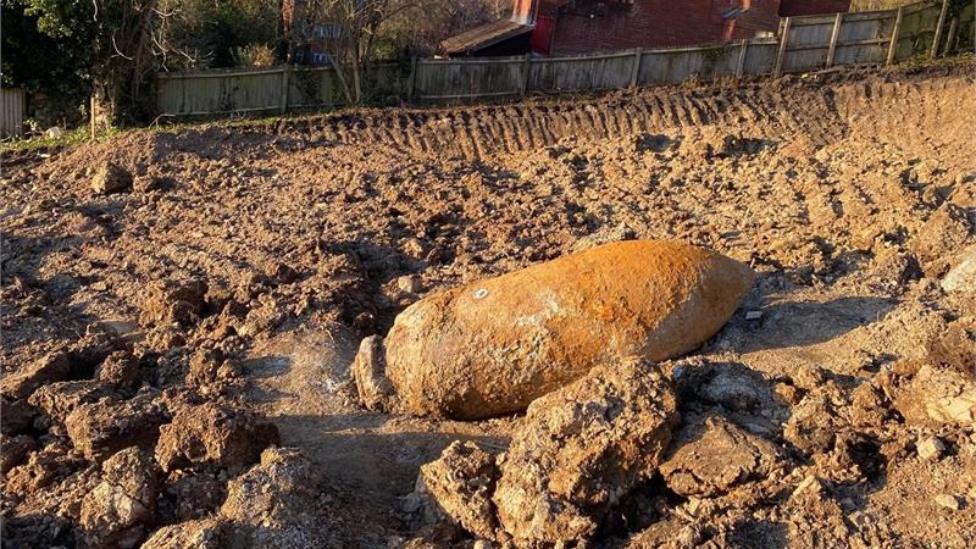
- Published26 February 2021
